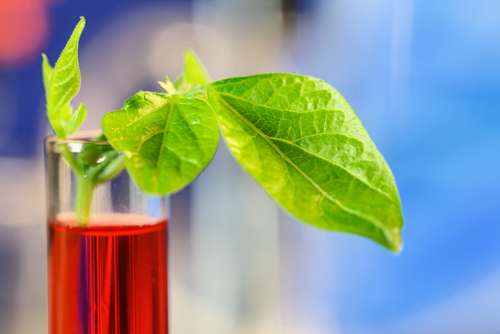iBio Announces Updates on Anti-fibrosis Plant-grown Protein CFB03 For IPF, SSc
Written by |

 On Dec 10, 2014 iBio, Inc. revealed progress in developing IBIO-CFB03, a treatment for idiopathic pulmonary fibrosis (IPF), systemic sclerosis (SSc), and other fibrotic diseases at its Annual Meeting. Unlike other proteins, which are produced by animals or cells in a dish, IBIO-CFB03 will be grown in plants.
On Dec 10, 2014 iBio, Inc. revealed progress in developing IBIO-CFB03, a treatment for idiopathic pulmonary fibrosis (IPF), systemic sclerosis (SSc), and other fibrotic diseases at its Annual Meeting. Unlike other proteins, which are produced by animals or cells in a dish, IBIO-CFB03 will be grown in plants.
IPF is a disease characterized by thickening and scarring of the lungs. It progresses quickly and has a negative impact on quality of life and a mortality rate of within three to five years after diagnosis. IPF has a worse survival rate than most forms of cancer.
[adrotate group=”4″]
During 2014 iBio reported that they collaborated with Dr. Carol Feghali-Bostwick at the Medical University of South Carolina (MUSC) , the inventor of IBIO-CFB03, to further develop the drug for clinical trials. In 2012 Dr. Feghali-Bostwick published data demonstrating that endostatin-derived peptides (such as IBIO-CF03) are useful for inhibition and reversal of fibrosis in preclinical mouse models of fibrosis and in human skin. Endostatin is a normally-ccourring protein that is similar to collagen. It prevents the formation of new blood vessels (angiogenesis).
Dr. Feghali-Bostwick’s study was published in Science Translational Medicine. “We designed short peptides, stretches of amino acids, that matched or corresponded to different regions of endostatin to try to find out which region is really responsible for the reduction of fibrosis,” she said. They produced an endostatin-like protein that they called E4. When the group studied the E4 in healthy human skin cells that had been given treatment that would normally make them fibrotic, E4 effectively blocked fibrosis. E4 also protected the skin and lungs of mice from fibrosis in a complementary mouse model. E4 was even able to reverse existing signs of fibrosis.
iBio now has an exclusive, worldwide license to patents and pending patents related to this technology and is developing a program to test and produce the active ingredient in IBIO-CFB03 using iBioLaunch™ technology. According the company’s website, “The iBioLaunch™ platform is a proprietary gene expression technology that causes non-transgenic plants to rapidly produce high levels of target proteins.” Plants can be grown and can produce proteins at lower cost than is required for producing proteins in animals or cells.
According to the company, preclinical animal studies have demonstrated efficacy and lack of toxicity, therefore the drug can now justifiably advance to human clinical trials. Phase 1 studies will evaluate safety in healthy participants and will also examine preliminary effectiveness in patients.
[adrotate group=”3″]
iBio also reports that an advisory board has been assembled to lead the development of IBIO-CF03 including: Dr. Thomas A. Medsger, Jr., an expert on scleroderma, Raynaud disease and polymyositis/dermatomyositis, Richard M. Silver, M.D., a leader in the study and treatment of systemic sclerosis, Timothy Blackwell, M.D., an expert in IPF and other lung diseases, and Dr. J. Terrill Huggins, a top clinical investigator in IPF.
New treatments for fibrosis are still greatly needed. Two medications, Esbriet(R) (pirfenidone) and Ofev(R) (nintedanib) were approved by the FDA for IPF in late 2014 based on statistically significant reductions in disease progression observed in some clinical trial participants. However, neither drug appears to extend life, or halt the progress of IPF. Systemic sclerosis is a disease of skin connective tissue, internal organs and blood vessel walls. Current treatment is limited to symptom management with no currently approved drug that can halt disease progression of treat the underlying cause of the disease.



